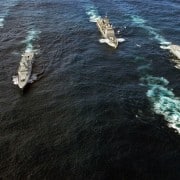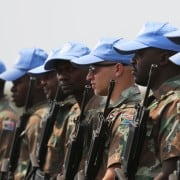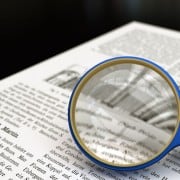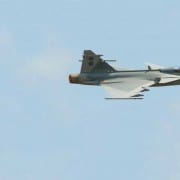|
Getting your Trinity Audio player ready...
|
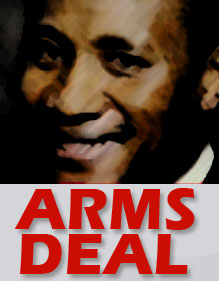 By Lee-Ann Alfreds
By Lee-Ann Alfreds
Update: Fana Hlongwane did not show at the Seriti Commission yesterday. His lawyers are negotiating with evidence leaders for terms of his appearance – including a ban on cameras in the room.
He has managed to remain in the shadows despite his vast wealth and powerful connections. But that is set to change today.
For Fana Hlongwane – the arms deal playboy known by the nickname of “Styles” – is set to take the stand at the Arms Procurement Commission to answer to allegations of backhanders and corruption.
The one-time advisor to former defence minister Joe Modise, Hlongwane, in his mid-50s, is accused by arms critics of having made hundreds of millions from the arms deal for “consultancy services”.
Documents released by Democratic Alliance MP David Maynier – who testified before the commission earlier this year – in June 2011 showed Hlongwane could have been paid more than R150-million by BAE for work related to the arms deal. The commission is investigating allegations of fraud and corruption in the controversial 1999 arms deal.
Maynier released the documents after the CEO of Swedish arms manufacturer Saab, Hakan Bushke, revealed that his firm had through British Aerospace Systems (BAE), paid R24-million to a South African “consultant” for preferential treatment in the arms deal.
The revelation was widely covered in local media. The payment was made via a company called South African National Industrial Participation (Sanip), set up to manage arms deal offsets, which were supposed to be the vehicle of investment of hundreds of millions of rands by the arms companies, and result in 65 000 new jobs.
Documents reveal dodgy details
The first document appeared to be a five-year consultancy agreement between Sanip and Hlongwane Consulting, of which Hlongwane was the sole shareholder, signed in September 2003. Hlongwane is also chairman of Ngwane Defence Group, a black-owned company specialising in aerospace, military and security solutions, and a shareholder in LSM Distributors, the company with exclusive rights to import Porsche motor vehicles to South Africa.
The document showed Hlongwane stood to make about R62-million from Sanip. This included an initial payment of R8.1-million which would have been made around August 2003; a fee of R1.8-million every quarter, commencing in September 2003; a bonus of R22.5-million upon completion of “milestone one” project; and another bonus of R30-million upon completion of “milestone two” project. All the payments were premised “on the basis that the government does not terminate the Tranche 3 of the Hawk-Gripen agreement”.
Under the Hawk-Gripen agreement, South Africa bought 26 Gripen fighter jets and 24 Hawk trainers at an estimated cost of R15-billion from Saab and BAE. The deal was divided into three parts, and gave government the option of cancelling the second and third at any point.
The second document was a list of several payments worth R51.3-million, apparently made to Hlongwane Consulting by Sanip between 2003 and 2005.
The third document was an amendment to a 2005 agreement between Hlongwane Consulting and BAE, revealing Hlongwane stood to make £1-million (about R11-million at the time) to identify “specific decision makers” in the South African government and to set up meetings.
The fourth and final document was an amendment relating to a 2003 agreement between Hlongwane Consulting and BAE, promising an extra $8-million (about R55-million) to Hlongwane Consulting for “additional work done” on “Tranche 3” of the Gripen contract.
“The documents amount to prima facie evidence of bribery and/or corruption and raise some serious questions,” Maynier said at the time, adding to calls for a new arms deal probe.
No clear evidence
The Hawks raided Hlongwane’s Johannesburg home in 2008, but the media later reported that national prosecutions chief Menzi Simelane told the Asset Forfeiture Unit to drop the case, claiming there was no clear evidence linking Hlongwane to arms deal bribes.
Hlongwane – who owns homes in upmarket Hyde Park, Johannesburg and Zimbali, KwaZulu-Natal and a fleet of cars including a Lamborghini, Bentley and a Ferrari Spider among others – has never denied receiving the payments.
He did not respond to requests for comment at the time, but City Press reported later in 2011 that Hlongwane filed a suit against BAE in 2008 and 2009 for R36-million in unpaid fees.
Documents filed by Hlongwane in the arbitration matter revealed he received a further bonus of R11.3-million in April 2006 after certain BAE offset programmes were signed off.
Responding documents filed by BAE showed the company also had a marketing agreement with Hlongwane under which it paid him £1-million a year from January 2002. When this agreement was cancelled in April 2007, Hlongwane would already have earned more than R60-million in marketing fees, City Press reported.
Citing clauses that allowed it to terminate agreements, BAE stated it was entitled to end Hlongwane’s services after he was implicated in corruption that negatively affected the company’s image. “The criminal investigations into the activities of Ngwane (Aerospace, one of Hlongwane’s companies) and Hlongwane, and the associated high profile in the media mean association with Ngwane adversely affected BAE’s reputation or was likely to do so,” a defence statement prepared by BAE’s London-based solicitors read.
Altogether City Press estimated BAE had forked out over R200-milion in commission to Hlongwane for assisting them in winning arms deal contracts and managing their offset projects in South Africa.
Lucrative career
Whether it’s R150-million or R200 million, it’s not bad for a KwaZulu-Natal boy who left South Africa in the 1970s to join Umkhonto weSizwe and later ascended to its high command.
Hlongwane, who studied towards a law degree in the former Soviet Union, came to public attention when he was spotted at Modise’s side during the Codesa talks, according to the Argus. He later emerged as Modise’s adviser on the arms deal.
He is alleged to have been at the forefront in pushing for the BAE deal for Hawk trainer jets and the BAE-Saab Gripen fighter aircraft, which made up a substantial chunk of the arms deal, the Argus reported.
In his book The Arms Deal in your Pocket, critic Paul Holden describes how Britain’s Serious Fraud Office submitted a request for assistance to South African authorities to pursue an investigation into the BAE deals in mid-2006.
“Attached to the request, which was granted by South African investigators in January 2007,” wrote Holden, “were a series of damning allegations. According to the application, there existed a complex web of agents and intermediaries who had batted for BAE in South Africa. In particular, the allegations fingered one Fana Hlongwane.”

